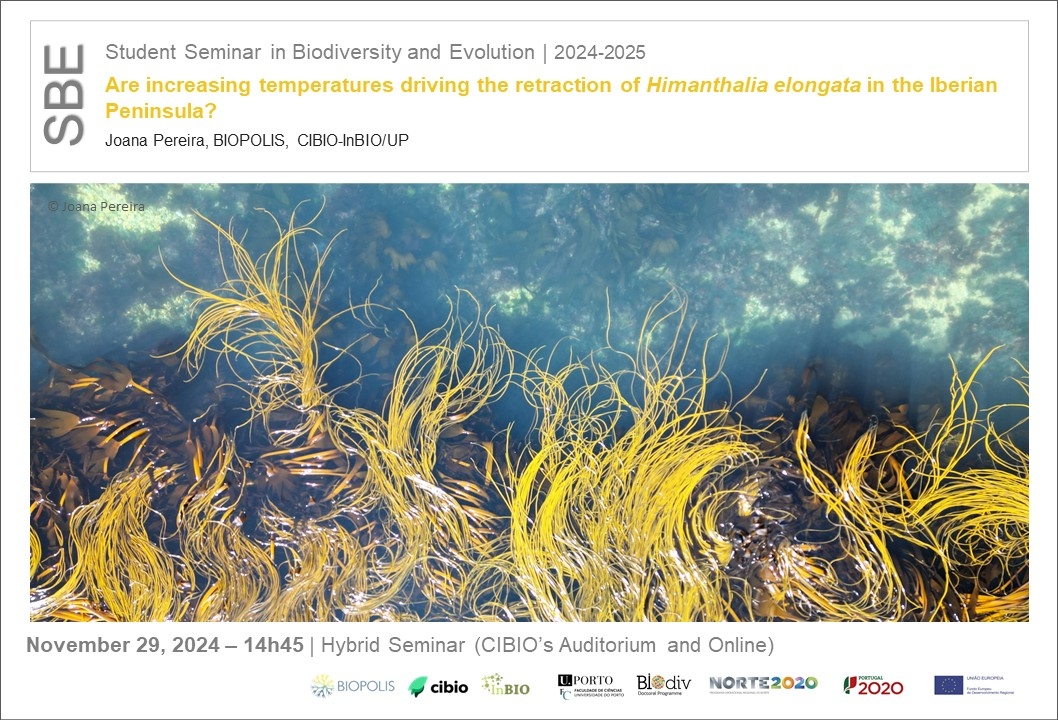Are increasing temperatures driving the retraction of Himanthalia elongata in the Iberian Peninsula?
29 Nov 2024 - Joana Pereira, BIOPOLIS, CIBIO-InBIO/UP | 14h45 | Hybrid Seminar

STUDENT SEMINAR IN BIODIVERSITY AND EVOLUTION
[Host: Fernando Lima, Marine Ecology, Diversity and Change - COASTALWARMING]
Global warming has widely impacted marine ecosystems, with shifts in species distributions being one of the most widespread consequences. A striking example is the sea spaghetti, Himanthalia elongata, a canopy-forming brown macroalgae with an important structuring role in coastal ecosystems. This species used to occur from Scandinavia to central Portugal, with a distribution gap in the warmer Bay of Biscay. However, it is becoming extinct at its warm distribution edges – a phenomenon often associated with further biodiversity loss. These drastic distributional shifts seem to be directly responding to warming in the region. In this study, we reconstructed the historical changes in the distribution of H. elongata on the Atlantic coast of Europe – an area in which this species was repeatedly surveyed since the 1950s – re-evaluating its current distribution and abundance and correlating distributional changes with warming. Additionally, we used field transplants to assess the direct and indirect effects of intertidal temperatures on the fitness of H.elongata. These transplants were taken from healthy populations in Galicia to populations where H. elongata has since become extinct in central Portugal. In this talk, we will discuss the potential influence of increasing temperature on biogeographic changes observed in the field.
Joana Pereira is a PhD student in the CoastalWarming group at BIOPOLIS-CIBIO, her research focuses on exploring the impacts of climate change on coastal biodiversity. For her master’s thesis, she carried out a fine-scale survey of the distribution limits of intertidal macroalgae species in Northwestern Iberia. This involved extensive fieldwork where she gained practical experience in identifying macroalgae and other intertidal organisms. Following her master’s degree, she took part in further biodiversity surveys with the CoastalWarming team, broadening her expertise in identifying European intertidal flora and fauna. Her current PhD research aims to uncover the mechanistic connections between climate-driven changes and shifts in coastal ecosystems, contributing to a better understanding of biodiversity dynamics in these environments.
[Host: Fernando Lima, Marine Ecology, Diversity and Change - COASTALWARMING]